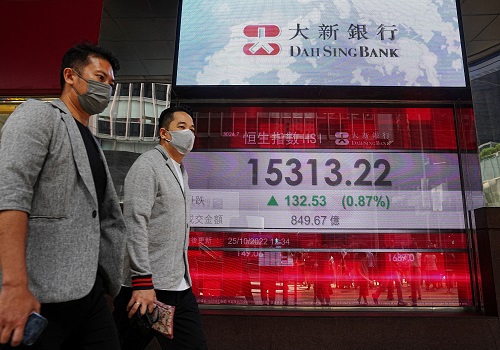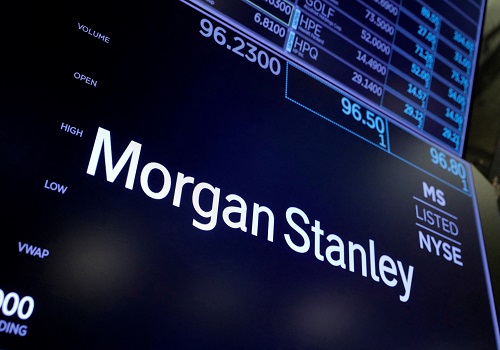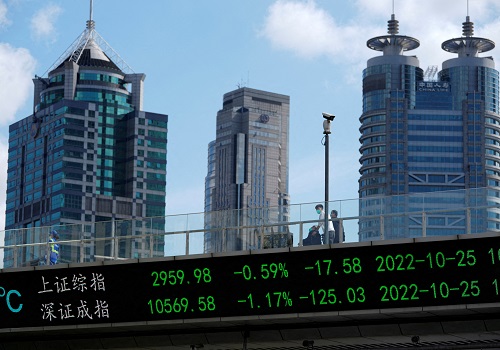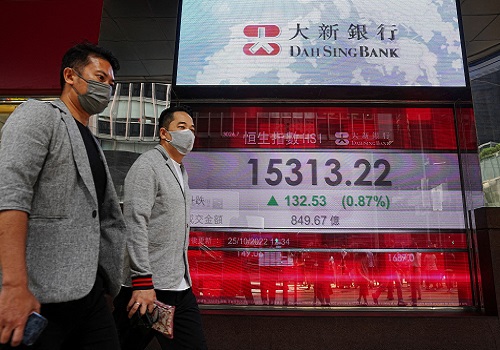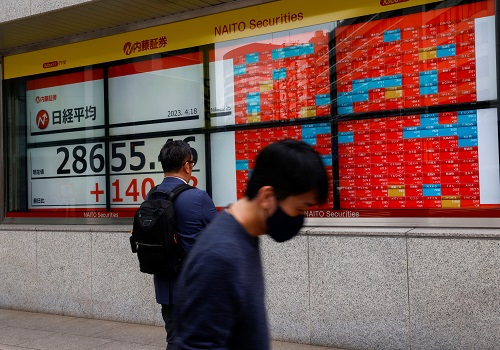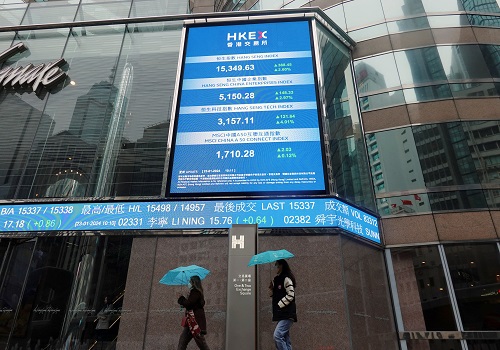Nikkei leads Asia higher, China struggles to keep up
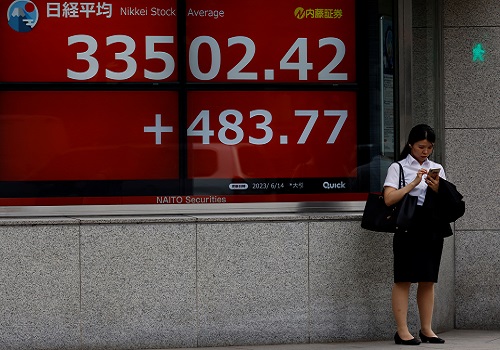
Follow us Now on Telegram ! Get daily 10 - 12 important updates on Business, Finance and Investment. Join our Telegram Channel
Asian shares edged higher on Monday as demand for tech stocks buoyed Japan's market, while a data-packed week promises to be pivotal in the outlook for the Chinese economy and U.S. interest rates.
China's recovery has so far disappointed high expectations and the Caixin manufacturing survey due later on Monday is forecast to dip to 50.2 in June, from 50.9, and may even slip into contraction.
The central bank has promised more "forceful" action to support the economy and looks likely to soon get a new boss. Something major is needed given Chinese blue chips shed 5% last quarter while much of the developed world rallied.
"As Japan found in the 1990s, it's hard work stimulating an economy experiencing a significant property slump against a backdrop of high sector debt and a falling population," cautioned analysts at ANZ in a note.
In contrast, Japanese stocks have been going gangbusters as an influx of offshore buying lifted the Nikkei almost 20% last quarter, spurred by a weak yen and hopes of Japanese firms filling any gaps created by Sino-U.S. decoupling. Early Monday, the index was up another 1.2% and close to recent peaks.
A survey from the Bank of Japan showed business sentiment improved in the second quarter as easing supply constraints and the removal of pandemic curbs lifted factory output and demand.
MSCI's broadest index of Asia-Pacific shares outside Japan edged up 0.2%, but has been lagging far behind Japan's market.
S&P 500 futures and Nasdaq futures were steady ahead of the July 4 holiday, having both gained more than 6% in June.
The high-flying tech sector could get another boost from news Tesla delivered a record 466,000 vehicles in the second quarter, topping market estimates of around 445,000.
That followed Apple's crossing above $3 trillion in valuation for the first time on Friday and sealing the Nasdaq's best quarter in 40 years.
Analysts at BofA noted the market value of the seven biggest tech stocks had ballooned by $4.1 trillion so far this year, while Apple, Microsoft and Alphabet combined were worth more than the entire emerging market.
FED STILL SEEN HIKING
Sentiment had been soothed on Friday by a modest downward surprise in U.S. inflation while a flat reading for consumer spending suggested the Federal Reserve's rate hikes were having an impact, albeit gradually.
Debt markets, however, still imply around an 84% chance of the Fed hiking to 5.25-5.5% this month, and a 60% probability of yet a further rise by November.
Minutes of the Fed's last policy meeting are out on Wednesday and will expand on why they decided to pause, though most policy makers also expected to hike at least two more times by year end.
Important U.S. data this week includes closely watched surveys on manufacturing and services, job openings and the June payrolls report. Median forecasts are for a steady unemployment rate, while jobs are seen up 225,000 after May's surprisingly strong 339,000.
"We don't think that would be nearly enough slowing for Chair Powell and the rest of the FOMC to stand down from the recent rhetoric pointing to further tightening," said Michael Feroli, an economist at JPMorgan.
"While we see a strong case for a July hike, we still believe the two subsequent payroll reports prior to the meeting in September will show enough slowing to allow the Fed to more comfortably go on extended hold."
The prospect of at least one more U.S. rate rise continues to underpin the dollar against the yen, given the Bank of Japan shows little sign of abandoning its super-easy policies.
The dollar stood at 144.27 yen on Monday, after hitting an eight-month peak of 145.07 last week before the risk of Japanese intervention slowed its ascent.
The euro was likewise firm at 157.40 yen, and just off its recent 15-year top of 158.01. The single currency was range-bound on the dollar at $1.0985, having spent the entire year so far trading between $1.0635 and $1.1096.
Rising interest rates globally have seen gold struggle recently and the metal was last lying at $1,918 an ounce, near last weeks' three-month low at $1,892. [GOL/]
Oil prices dipped as investors waited to see the impact of another round of output cuts by Saudi Arabia. [O/R]
Brent eased 26 cents to $75.15 a barrel, while U.S. crude fell 25 cents to $70.39 per barrel.














